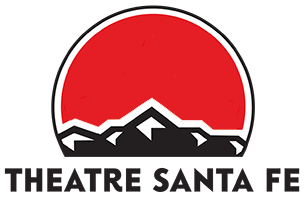Theatre or Theater? And other terms.
Why is it spelled “theatre” and not “theater”?
First of all, the spelling “theatre” has it’s origins in Old English where the ‘e’ and ‘r’ at the end of a word is often the reverse of American English’s later ‘er’ spelling. As used here, “theatre” (ending in ‘re’) typically refers to live performances of modern or classical plays or other types of live dramatic stage productions. In our society, the term “theater” (ending in ‘er’) is often used to refer to a place to go watch a different kind of entertainment, such as movie, i.e. a movie theater. So, those last to letters — ‘re’ and ‘er’ — carry a special meaning depending on the type of entertainment being enjoyed.
What is a Venue?
Simply put, a venue is the place one goes to enjoy an event. Theatre venues typically have stage or performance space with seating for the audience. A venue will also typically provide stage lighting, a sound system and other amenities for the productions.
What is a Company?
A ‘theatre company’ is an assemblage of people whose focus is to produce a theatre event, typically including permanent or contracted directors, actors and crew. A company may or may not have its own venue to put on its productions. If a theatre company does not have its own venue, it will typically rent one in advance.
Who are the people behind the scenes of a theatre event?
Such an important thing to know! Though, like going to a movie, one can enjoy the story without knowing how the ‘sausage is made.’
Writers (sometimes referred to as ‘playwrights’ or ‘dramatists’) imagine and create the play or story that winds up being produced into a performance.
A theatre producer is the executive piece of the puzzle and will typically make all the arrangements to kick the production into gear, seeing it through to the final performance and paperwork.
A director is charged with rehearsing and refining the performance while working with the actors and crew to guarantee a successful event. Directors are often experienced actors or producers too.
The actors are the public face of the performance event. Actors typically audition for a role in a production, and if selected, will spend weeks and months doing rehearsals with the director, ‘blocking’ their movements on stage, learning dance sequences as needed and being their best at every performance. Actors, even when ill or distracted by real-life’s twists and turns, know well the challenging mantra “The show must go on!”
The great, often unsung, heroes of most theatre productions are the crew consisting of lighting and sound specialists, set builders, trainers and coaches, technicians, assistants and consultants of every stripe.
On the night of a theatre performance attendees will be greeted by the front or door people that will accept your tickets, payments, donations and will give you a program that outlines what to expect from the event.
If you would like to improve, add to or correct any information on this page,
please contact us with your suggestions. We welcome your input!

